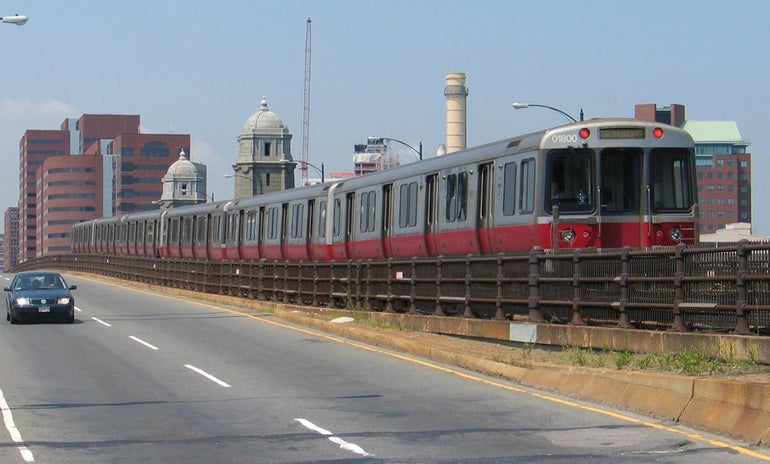The MBTA is preparing to more than double its spending on capital projects over the next five years, aiming to spend $6.5 billion to chip away at its state of good repair backlog and expand the transit system.
Forecasting that the agency will spend between $850 and $950 million this fiscal year, T officials said Monday they hope to ramp up capital spending to an annual average of $1.3 billion, an amount they said would allow them to finally get ahead of system’s upkeep.
“Long-term, the key to improving the rider experience for our 600,000 commuters every day that ride the system is rebuilding the system, and that means really significant capital improvement,” Acting MBTA General Manager Brian Shortsleeve said. He added, “This capital plan for fiscal 17 to 21, forecasts a doubling in spending. So the total program of $6.5 billion over the next five fiscal years is more than twice what the T has historically invested.”
Faced with a $7.3 billion backlog in maintenance of the T system and its vehicles, transit officials said Monday the agency estimates it would have to spend at least $765 million per year to bring the entire system to a state of good repair by 2040.
“The backlog of state of good repair is certainly a challenge we need to deal with every day,” MBTA Chief Operating Officer Jeff Gonneville told reporters. “It’s probably one of our highest priorities and something that we’re really going to be focusing on both within operations and overall … at the MBTA. That will not only have an impact on immediate customers, but certainly a much greater impact as it relates to the future MBTA as you look down the road.”
Transportation Secretary Stephanie Pollack said the changes are expected to allow the MBTA to whittle away at its maintenance backlog more efficiently while also running and handling the day-to-day upkeep of the transit system.
“That’s really where the focus is,” the secretary said. “We’ve got to get up to that $765 million and then keep it up year after year after year or every year what’s happening is as many assets as we’re fixing the same number are falling out of a state of good repair and you’re sort of in a steady state.”
Capital spending over the last five fiscal years totaled $3 billion and the MBTA was not spending all of the capital funding that it was allocated. The acceleration of capital investment — a more-than-doubling to $6.5 billion over five years — will not require the Legislature to authorize more capital spending at the T, Pollack said.
“We do not need to find the $6.5 billion,” she said. “We need to spend the $6.5 billion.”
Pollack said the T will also work to better align the capital projects it funds with its priorities of making the system more reliable and more modern. Of the $743 million of capital spending at the T in fiscal year 2016, $502 million was dedicated to reliability and modernization, with the rest allotted for expansion efforts.
Pollack said the T’s projections for fiscal year 2017 would represent a 59 percent increase in capital spending for reliability and modernization — about $800 million in total. The secretary said an 80/20 split between capital spending for reliability and modernization, and expansion would be ideal.
The T is also planning to change the way it ushers projects from the initial design and engineering stages to the actual implementation.
In addition to switching to a more modern project management software, the T is also overhauling its “flawed contracting processes,” which Shortsleeve said “have slowed down the rate at which the MBTA can get projects done even when the funding is available.”
Working off the model established last year for winter resiliency work, the T is aiming to shorten the construction procurement process to between 60 and 90 days, which Shortsleeve said would represent a 50 percent reduction in the time between the contract being advertised and the contractor being given a notice to proceed.
“Our goal with all of these changes … is we believe we can run the system, and we can fix the system, and we can do them both faster than we’ve done it in the past, and safely for our workers and our riders,” Pollack said. “But doing that is complicated and requires a level of coordination, organization and resources that have not previously been hardwired into the MBTA and we’re going to hardwire them into the MBTA.”

